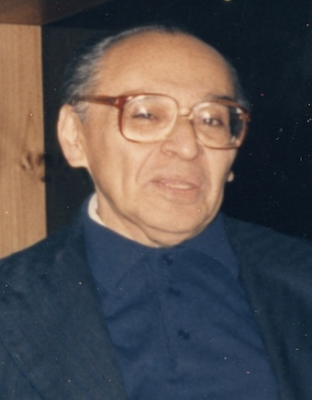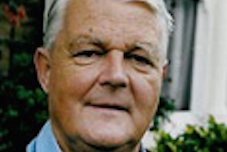Gustavo Gutierrez - Father of Liberation Theology

Fr Gutierrez 1988. Wiki Image: Archivo José Carlos Maríategui, Lima, Peru
Gustavo Gutierrez: 8 June 1928-22 October 2024
Locating turning points in history is strangely attractive. We like to account for them by the actions of great men (rarely women). Before it was like this, after it was like that, the story goes. Though in reality many influences are at work, many slow changes and complex dynamics lie between the before and after.
Peruvian Dominican priest Gustavo Gutiérrez who died on 22 October aged 96, for many in the Catholic Church, was such a man. Born in the heart of Lima, wheelchair bound for much of his six teenage years, half Quechuan half Hispanic, he became known as the father of Liberation Theology. His thinking is the key to understanding the most important current ideas in Catholicism worldwide since the 1960s. To celebrate Gustavo's life is to celebrate a key contributor to a gradual but vitally important change in the life of a global Church and its 1.36 billion members in the last half century.
From the condition of Latin America when he was writing, and Catholic tradition, came his vision of 'el quehacer teologica' theology's task. He posed foundational questions that lay behind the re-discovery of the Church's "preferential option for the poor" understood as its principal pastoral concern: "How do we convey to the poor that God loves them?" and "How to speak out of the suffering of the innocent about God?" 'Hablar de Dios desde el sufrimeineto del inocente', a task that has, to put it mildly, not become obsolete.
When it comes to great men, a Peruvian theologian may sound a surprising choice. Many of the world's Catholics, at least the older ones, would pick Angelo Giuseppe Roncalli, born into a sharecropper family of thirteen children in a small village in Lombardy, who as John XXIII called the second Vatican Council (1962-1965). A gathering that brought together bishops, leaders and theologians from around the world, though still largely from Western Europe, which sought to update and renew the life of the Church. This would be the turning point in Catholic life that - often forgotten - he introduced with a speech underlining the Church's concern for the poor and suffering.
The great man story of historical change holds up quite well for the vision behind the Council. But for - what was becoming - a truly global Church, that story neglects the long process of change that had been going on not only in Europe but notably in Latin America. And the impact of the Council in many countries was softened even blocked by cautious bishops, the UK be an example, dashing many hopes. Latin America proved more fertile soil. Gutiérrez's Theology of Liberation: Perspectives published in Spanish in 1971 by the Lima Centro de Estudios y Publicaciones (in 1973 by the Maryknoll Fathers' Orbis in English), became the core inspirational text driving this process. And at the same time, Leonardo Boff in Brazil. Jean Luis Segundo in Uruguay and Hugo Assman in Bolivia, were publishing on the same themes unknown to each other.
The Church in Latin America had a head-start in addressing the challenge of poverty. In the 1950s, 60% of the population in Peru lived in poverty with 82% of these living in extreme poverty. CELAM, the Bishops' Conference of Latin America, held its first meeting in 1955, so later initiatives responding to such acute poverty on the continent, such as radio schools, were shared.
Gutiérrez's recognition of the importance of the economic, social and political within a Christian understanding of the world around him, came during student life in Catholic Action, like that of several other priests, in his case at the National University of San Marcos in Lima. Catholic Action officially defined as "the participation of the laity in the apostleship of the hierarchy" drew on the simple see-judge-and-act practised in movements such as Young Christian Workers and Young Christian Students. "The poor are the by-product of the system in which we live and for which we are responsible", he wrote later. His vocation to the priesthood seems to have been, in part, a response to this responsibility.
Gutiérrez's seminary training brought him to the Catholic University of Leuven in Belgium and to Lyon, where he encountered 'la nouvelle théologie', the thinking of the European theologians who were later to influence the debates and decisions of the Vatican Council. They highlighted writings of the 'Church Fathers' from the early Christian centuries when the appointment of a bishop could be challenged for not being 'a lover of the poor'. As Gustavo later put it, that the Church must be "on the side of the oppressed classes and dominated peoples clearly and without qualification" was not some leftist novelty but rooted in Church history.
On his return to Peru, after ordination in 1959, Gustavo served in the Church of the Holy Redeemer in Rimac, a working-class district in north Lima. Revolution in Cuba was causing ferment throughout Latin America. Two major forces, Marxism and Catholicism, contended for hearts and minds. In his exploration of a Christian account of liberation Gutiérrez along with other liberation theologians rejected this binary division and borrowed some elements of Marxist analysis for description of the lives of the poor.
The year 1968 for Latin America - as elsewhere - was something of a turning point. Father Pedro Arrupe, the Superior-General of the Society of Jesus, instructed his fellow Jesuits in Latin America that their ministry should be informed by 'an option for the poor'. In late July in the Peruvian coastal town of Chimbote, Gutiérrez presented a seminal paper, 'Towards a Theology of Liberation' at a continentwide meeting of priests and laity, just one month before a major meeting of CELAM in Medellin, Colombia, which adopted the language of a preferential option for the poor.
Liberation theology sees liberation as a dimension of salvation, 'a demand that we go and build a different social order', the kingdom of God of the Lord's Prayer not an entirely secular project. After a succession of coups bringing to power murderous US-supported military dictatorships and oligarchies in 1960s Latin America, Gutiérrez understood full well that this could not be accomplished without conflict. The National Security States branded work amongst the poor as "communist infiltration of the Church"; military and death squads killed pastoral workers with virtual impunity. The murder at the altar of Salvadorian archbishop, St. Oscar Romero, in March 1980, came to personify their sacrifice.
Despite this, in the 1980s, the Vatican, fearful of Soviet-style communism, sought to censure liberation theology, though conflict was to some degree resolved. The pastoral concern and spirituality that Gutiérrez embodied had already entered the bloodstream of the global Church. Expressions of it are seen in Pope Francis' teaching and approach to the papacy. It has motivated the work of thousands of Religious Sisters, priests and countless Catholics finding their vocation in working amongst the poor and marginalised of their societies.
I was fortunate to hear Gustavo speaking on several occasions. One anecdote has stayed with me. To paraphrase, he said: "I realised how different my life is from that of the poor. I have enough money and not enough time. They have time enough and not enough money". Amongst years of pioneering teaching and writing, finding time for the poor may have been his greatest gift. He is surely a Doctor of the Church. May he rest in peace.
Professor Ian Linden is Visiting Professor at St Mary's University, Strawberry Hill, London. A past director of the Catholic Institute for International Relations, he was awarded a CMG for his work for human rights in 2000. He has also been an adviser on Europe and Justice and Peace issues to the Department of International Affairs of the Catholic Bishops Conference of England and Wales. Ian chairs a new charity for After-school schooling in Beirut for Syrian refugees and Lebanese kids in danger of dropping out partnering with CARITAS Lebanon and work on board of Las Casas Institute in Oxford with Richard Finn OP. His latest book was Global Catholicism published by Hurst in 2009.

















